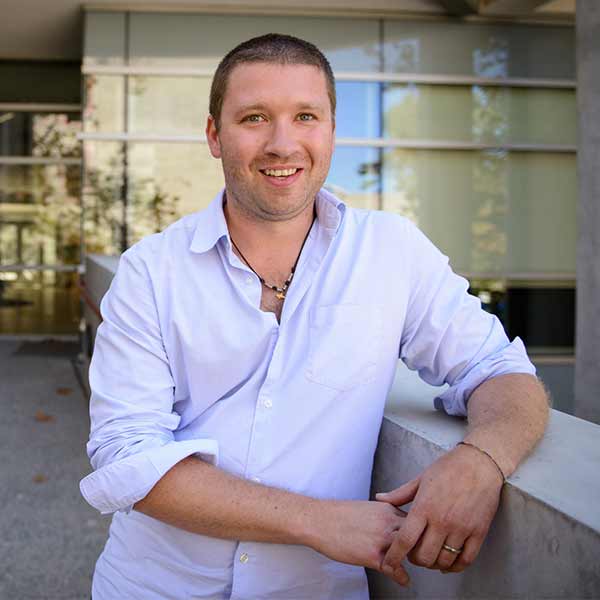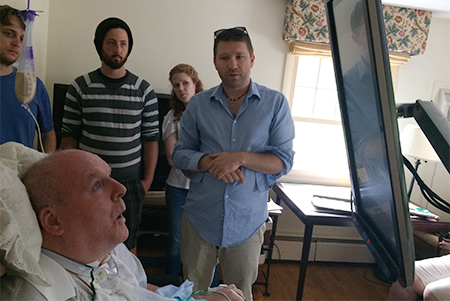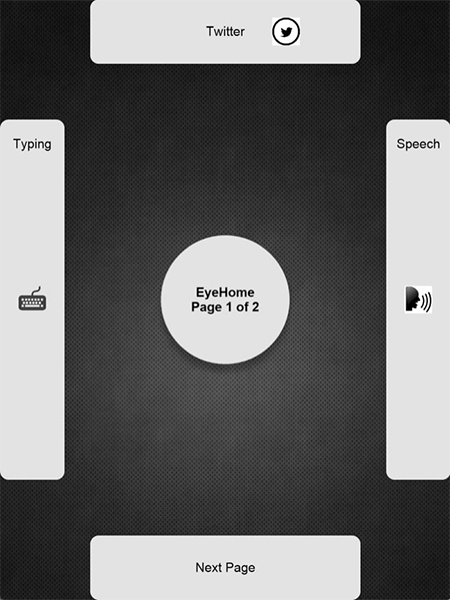
Computer Scientists Work to Help Individuals with Locked-in Syndrome Thanks to Moxie Foundation
Published Date
By:
- Kristin Luciani
Share This:
Article Content

Nadir Weibel
A $300,000 gift from the Moxie Foundation will support computer scientists at the University of California, San Diego who are researching and developing high-tech assistive technology to help individuals with disabilities. Using the most advanced ubiquitous computing technologies, the project at the UC San Diego Jacobs School of Engineering will look into helping people facing a wide variety of challenges. The team has already started to work on one: locked-in syndrome, a condition that damages part of the brainstem, leaving individuals aware but unable to move or communicate.
“What makes this project outstanding is the manifold advantages to the students, the patient subjects as well as to the school in promoting a team approach to solving a serious health problem that is often overlooked,” said Irwin Zahn, whose family made the gift to support the project through their Moxie Foundation. Based in San Diego, the Moxie Foundation is dedicated to enriching and empowering individuals and communities by advancing educational achievement and entrepreneurial success, personal health and the environment. “We believe one of the best ways of learning is by actually doing something, not just reading about it and subsequently getting the best grade possible. This project is a wonderful example of experiential education.”

Computer science students test a prototype of their assistive technology with an individual who has locked-in syndrome.
The funding will support teams of undergraduate and graduate students led by Nadir Weibel, a research scientist in the Department of Computer Science and Engineering, for two years with the goal of prototyping technology that will help disabled individuals to communicate. Individuals with locked-in syndrome—which usually results from a stroke—are unable to move or verbally communicate due to paralysis of nearly all voluntary muscles except for the eyes. Weibel and his team will investigate ways of leveraging eye-tracking technology to translate a patient’s eye movement into different functionalities that will allow affected people to communicate and be more independent. The team is working on applications leveraging computer-generated speech, social media communication, special book readers, novel musical instruments and more.
“It’s very difficult to get funding for a project like this—it’s very experimental,” said Weibel. “But the Moxie Foundation has been a supporter of our work from the beginning. Thanks to their investment, we will be able to continue our research and make it scalable. At the same time, we are giving students an opportunity to use what they’ve learned in class to make a real difference in the world—and they are eager for that kind of experience.”
The assistive technology project came about from one of Weibel’s undergraduate classes: CSE118: Ubiquitous Computing. The course provides an opportunity for students to apply their computer science skills and cutting-edge technology to address real-world problems. In the fall 2014 class, Weibel challenged his students to come up with possible solutions to assist a patient with locked-in syndrome, using technology such as Google Glass and eye-tracking systems. By the end of the quarter, the students had developed a number of promising solutions, and a few students volunteered to continue the work with Weibel outside of class, with the goal of creating an early prototype.

One of the early prototypes developed by Weibel and his team is EyeHome. The EyeHome system links together independent eye-controlled applications, much like the home screen on a smartphone.
“I am wholeheartedly grateful for this gift from the Moxie Foundation,” said Albert P. Pisano, dean of the Jacobs School of Engineering. “I am excited to see the progress our students and researchers will make on this project. It has great potential to improve lives while providing invaluable educational experiences for our undergraduates.”
Rajesh Gupta, chair of the Department of Computer Science and Engineering, added: “Expanding hands-on, experiential education for undergraduates is a current priority for both our department and the Jacobs School overall. The Moxie Foundation has been a valuable partner in promoting education, innovation and entrepreneurship among our students and faculty.”
The Jacobs School of Engineering offers a variety of ways to support the Department of Computer Science and Engineering. Visit www-cse.ucsd.edu or call (858) 246-0593 for more information about investing in innovative research, experiential education and other areas of impact.
Share This:
You May Also Like
Stay in the Know
Keep up with all the latest from UC San Diego. Subscribe to the newsletter today.


